On 27 October 2023, DfE published an evaluation report of the 2021 Early Years Foundation Stage (EYFS) Reforms. The 2021 reforms aimed to improve early years (EY) outcomes for all children, particularly disadvantaged children, reduce assessment paperwork and support good oral health.
The 2021 reforms overhauled the Educational Programmes as well as the Early Learning Goals (ELGs), focusing on the critical areas that enable children to thrive now and in the future. The reforms made significant changes to the EYFS profile assessment, and reset approaches to ongoing assessment.
The evaluation report covered four groups: childminders, group-based providers, school-based pre-school providers, and reception. With a total of approximately 4,000 early years leaders and practitioners surveyed, the evaluation was conducted between October 2022 and March 2023 and included 60 follow up interviews.
Key Areas of Research Focus:
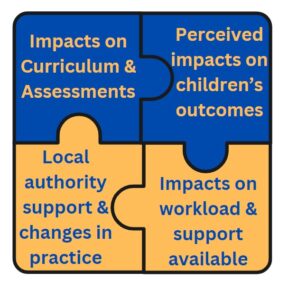
Following the surveys, we are excited to share the key results and takeaways:
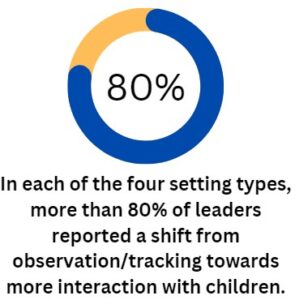
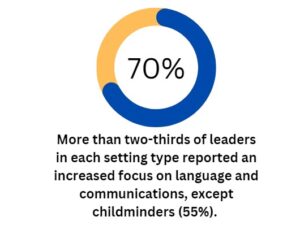
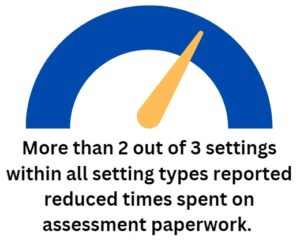
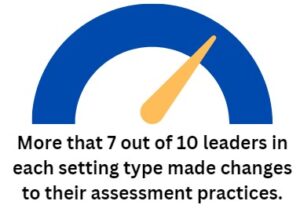
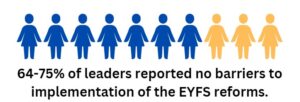
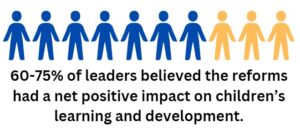
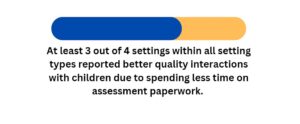
There are a couple of areas that the survey made DfE aware of for future consideration. For example, a small proportion of leaders and staff suggested that children with SEND could be better provided for in the EYFS with need for more attention and support within the guidance, and that the transition to Year 1 from reception could be better aligned for some children who need more support to ensure flexibility remains.
The overall positive impact following the 2021 EYFS reforms demonstrates the DfE’s commitment as the department for realising potential, increasing fairness and enabling all children to thrive.
Let’s explore some action-oriented conclusions following the report:
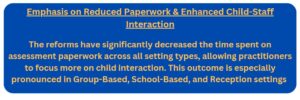

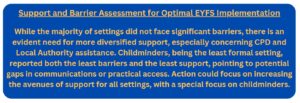
To read the report in full, please visit: Early years foundation stage (EYFS) 2021 reforms: evaluation – GOV.UK (www.gov.uk)
